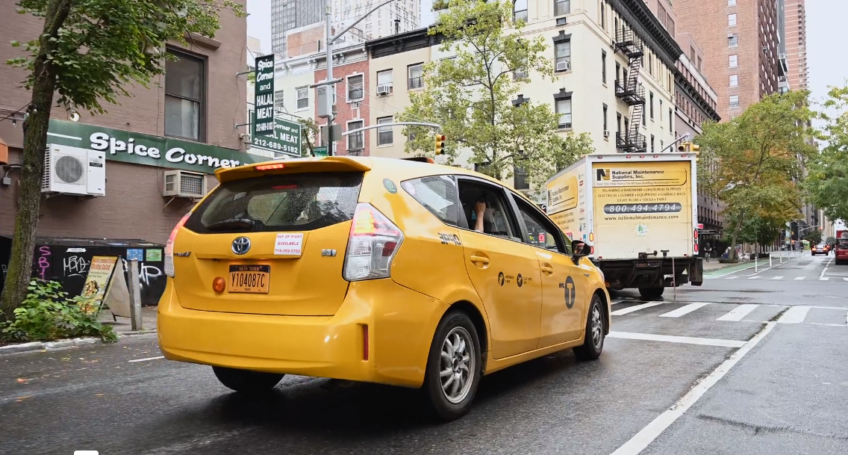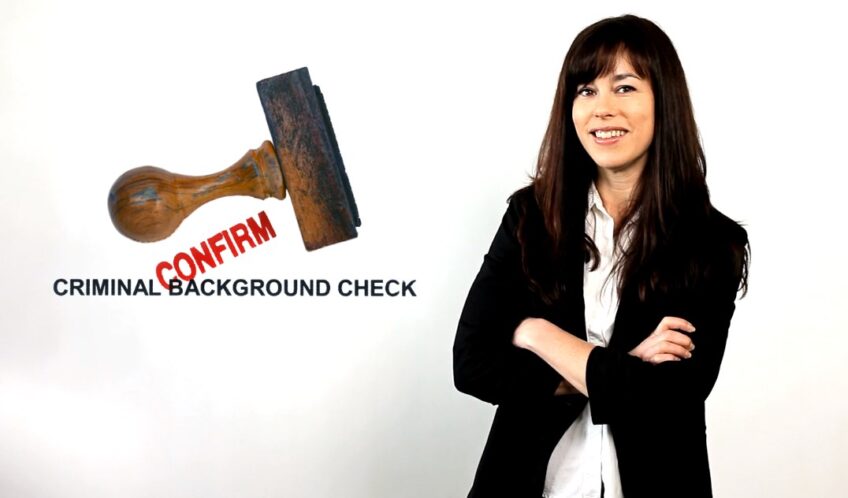If you’re interested in becoming a taxi driver, the first step is obtaining a taxi license. Depending on where you live, the process for getting a taxi license may differ slightly, but the general requirements and steps remain the same. In this guide, we’ll take you through everything you need to know about how to get a taxi license and become a licensed taxi driver.
Research Requirements
Getting a taxi license is a process that involves several steps. Before you start, it’s important to research all the requirements to ensure your application will be accepted. Requirements vary from state to state, so do some research to learn the specifics of your area.
This section will focus on the key research needed to get your taxi license.

Check local regulations and laws
Depending on your jurisdiction, the process for acquiring a taxi license may vary. It is important to consult the local regulations and laws specific to the jurisdiction you will be operating in by checking with your local city council or licensing authorities. This will ensure that all necessary paperwork and requirements, such as driver competency tests and vehicle inspections, are met before you apply for the license.
In some jurisdictions, this may include obtaining a permit that allows you to transport customers outside local boundaries. Additionally, some areas may require prospective drivers to take taxi-specific courses or provide proof of an insurance policy that meets their standards. Researching businesses and getting information from fellow taxi drivers in your area can also help you get a better understanding of the process and any requirements specific to the area. Having an idea of what is required will enable you to proceed more smoothly when applying for a taxi license.
Understand the application process

Understanding the application process for a taxi license is important before you start researching the other requirements. Depending on where you live, the process for licensing your vehicle will vary slightly. However, most states have similar regulations covering the same topics such as applicable laws, fees, age and experience requirements, and the overall licensing procedure. Additionally, some cities or states may require additional classes or certifications to be eligible to attain a taxi license.
Once you understand how to apply for a taxi license in your state or city, research any required documents and begin gathering them together. This can include proof of identity and residency as well as any relevant driving history information such as your driving record or vehicle registration documents. Finally, you may need to provide evidence that satisfies potential passenger safety concerns and this includes submitting authorization to run a criminal background check on yourself.
Understanding governing laws, researching applicable regulations in your area, and ensuring that you have all necessary documentation ready for review before beginning the application process properly can help make obtaining a taxi license easier and faster overall!
Gather Necessary Documents

In order to get a taxi license, it is necessary to gather all the relevant documents that are required. Some of these documents include a valid driver’s license, proof of insurance, a background check, and a vehicle inspection.
It is important to take the time to make sure all the necessary documents are in place before applying for a taxi license. This article will help you understand the process and prepare the required documents.
Obtain a driver’s license
In order to obtain a valid taxi or for-hire driver’s license, you will need to have a valid driver’s license. Drivers must submit DMV records from all states where they have been licensed in the past 5 years and must complete a DMV-approved driving course.
For those who do not yet have a driver’s license, complete the requirements necessary to obtain one before filing for a taxi or for-hire vehicle permit. For state-specific requirements and renewal information, contact your local DMV office.
Get a Certificate of Insurance

Obtaining a certificate of insurance is one of the most important steps in acquiring a taxi license. This will protect you and cab riders from other unforeseen liabilities. To get started, you must find an insurance company that provides coverage for taxi licenses and provide them with your license details. They will then issue a customized policy tailored to your specific situation and terms of operation, usually depending on the type of operation conducted and the number of vehicles or employees included.
In order to obtain a Certificate of Insurance, it is usually necessary to complete an application, including details about your vehicle type, fleet size, exposure limits, driver information, and other insurance coverage requests. In addition, some companies require taxi operators to provide proof of financial responsibility such as a tax return or other documentation evidence.
After submission, the completion time spans will vary depending on the insurer but most generally take between 10-15 days upon proper paperwork submission to obtain one’s Certificate of Insurance. During this period, your insurer may decide what coverage they can offer based on their review and may make changes or adjustments according to their assessment as deemed necessary by them before approving your policy.
Get a Vehicle Identification Number
Getting a Vehicle Identification Number (VIN) is an important step in getting your taxi license and putting your business on the road. A VIN is a unique 17-character number assigned to every car or truck sold in the United States. The VIN must be registered with the state where you operate and it must be displayed on all vehicles used for business purposes.
Depending on your state’s regulations, you may need to provide the VIN when you register for a business license or vehicle registration. With a valid VIN, you will have proof of ownership and authorization to operate your taxi as a licensed business within that state.
In addition to providing the Vehicle Identification Number, you may also need proof of insurance coverage for each vehicle you intend to use for business. This proof should include vehicle details such as make, model, year, and registration information along with an insurance policy number and effective dates of coverage. Make sure all these documents are kept up-to-date whenever changes are made or additional vehicles are added to ensure continued compliance with applicable laws and regulations.
Prepare for the Application

Securing it involves following a certain set of regulations which vary from state to state. Before applying for a license, it is important to understand the local laws and regulations, as well as the requirements for becoming a licensed taxi driver.
In this section, we will discuss the necessary steps to prepare for the application process.
Complete a driver’s education course
Completing a driver’s education course is the first step in obtaining a taxi license. You may be able to find state-approved courses online or at your local DMV or motor vehicle office.
Driver’s education courses should prepare you for both the legal and practical aspects of driving, including obtaining insurance and understanding local traffic laws and regulations. Most classes require you to take examinations in order to receive your completion certificate, which is often required when applying for a taxi license. The course may also offer time on the road with an instructor so you can get more hands-on experience behind the wheel.
It’s important that you understand your responsibilities as a driver before getting started, so make sure you do some research beforehand and ask for advice from experienced professionals if necessary. Taking the time to invest in proper driver education will pay off down the road when applying for a taxi license, as it will demonstrate your commitment to upholding high standards of safety on roads and highways.
Pass a criminal background check

Before you can apply for a taxi license, applicants are required to pass a criminal background check to ensure they are eligible for the role. It is important to understand the types of records that will be reviewed as part of this process in order to adequately prepare for the application.
The majority of jurisdictions require a criminal background check to make sure the applicant has not been convicted or incarcerated for any violent crimes or major felonies, including driving under the influence or reckless driving convictions that have occurred within the last seven years. The background check may also include searches of court records and convictions from other jurisdictions and a review of any prior arrests or warrants.
In addition, many authorities also look into an applicant’s personal history, such as a current address, marital status, and previous employment in order to further assess their eligibility for licensing. While these details do not guarantee that your application will be denied if certain information is present on your record, it is important to know exactly what will be included in your background search so that you can proactively prepare documentation that supports your positive qualities as a candidate.
Pass a medical examination

Initially, you must pass a medical examination and complete the application process. Generally, the medical examination tests your physical and mental health and includes vision, hearing, blood pressure tests, and urine analysis. You must be able to demonstrate that you are mentally fit to take responsibility for passengers’ safety. The medical professional evaluating you may require additional testing if they don’t feel confident with your physical or mental condition.
Prior to the medical examination, it is useful to have information about yourself ready so that you can provide accurate details about your current health status. This information should include any existing medical conditions as well as current medications that could have a potential impact on your ability to drive safely. Be sure to also bring along any relevant vaccinations that may be required for the legal operation of the vehicle in your area.
It is essential that you disclose any existing medical conditions when applying for a taxi license. It is illegal in most areas not to disclose any pre-existing health issues no matter how minor they may be perceived as being; this could lead to fines or other penalties being enforced by the licensing authority or even on-the-spot revocation of your license.
Pass a written test
Many cities and states require applicants to pass a written exam about their knowledge of approved taxi routes, dispatching practices, and fare regulations. It is best to begin studying these topics well in advance so that you can avoid being surprised by the test questions when you apply.
The content of the written exam may vary depending on your location; however, some general topics you should be aware of include:
- Local traffic laws, including any special regulations for taxis such as speed limits or signs related to transporting fare-paying passengers
- Routes approved by law enforcement or municipality
- Recommended road safety practices such as basic car maintenance and passenger service guidelines
- Fare calculation practices using local rates and accounting procedures
- Regulations governing driver background checks and license requirements
- Knowledge of radio systems used by local dispatch centers
By taking the time to review this material before taking the written test, you can ensure that you are fully prepared to obtain your taxi license.
Submit Application
When applying for a taxi license, you will need to provide certain documents in order to complete the process. Depending on the rules governing your particular jurisdiction, you may be required to submit an application form along with some additional documentation. Common documents requested include proof of identity and address, proof of car insurance, and a valid driver’s license. In some cases, you may also be required to pass a background check and medical examination.
Furthermore, depending on your jurisdiction and local laws, there may be other requirements you will have to meet in order to receive your taxi license. This can include demonstrating that you understand certain safety protocols or providing proof of qualifications from any driver class that is mandated by law in your area. Various bodies governing taxis in different countries have specific forms and regulations that must be observed; it is important that all forms are completed accurately and submitted before the due date for processing. Once all these steps are completed successfully, you would then receive approval for the issuance of a taxi license.
Pay Fees
In order to obtain a taxi license, you must pay the necessary fees and complete all of the required paperwork. Fees will vary from city to city and may include an application fee, criminal background check fee, and an issuance fee. Depending on your location, additional permit fees may be applicable as well so it is important to research any extra charges before submitting your application. It is also important that you understand the local laws for obtaining a Taxi License as there are certain requirements that must be met in order to obtain one.
Once all of the fees have been paid, you will need to gather together all of the necessary documents that must be presented with your application including:
- Proof of identity (driver’s license or passport)
- Applicable vehicle registration papers
- Proof of financial responsibility (insurance/business documents/tax returns)
- Valid vehicle inspection certificate
- Written authorization from the local governing agency where you plan to operate
Once all of these documents have been submitted along with your application form and accompanying fees, then you should wait for processing. Generally, speaking applications should take between 1 – 6 weeks depending on your local state laws.
FAQs

Do I need to have commercial insurance for my taxi vehicle?
Yes, most jurisdictions require taxi drivers to have commercial insurance that specifically covers the use of the vehicle as a taxi.
How much does it cost to get a taxi license?
The cost of it varies widely depending on your location, with some licenses costing several hundred dollars or more.
How long does it take to get a taxi license?
The time it takes to obtain a taxi license can vary depending on your location and the specific requirements in your area. In some cases, it can take several weeks or even months to complete the application process.
Can I start my own taxi business with a license?
Yes, many of these drivers choose to start their own taxi business after obtaining a license, either by buying or leasing a vehicle or by partnering with other drivers.
What happens if I fail the taxi license test?
If you fail the license test, you may be required to retake the test after a certain period of time or complete additional training or education before reapplying for the license.
Can I use my own personal vehicle as a taxi?
In some cases, you may be able to use your own personal vehicle as a taxi if it meets the necessary safety and comfort requirements. However, many jurisdictions require a specific type of vehicle for use as a taxi.
What happens if I violate taxi regulations?
Violating them can result in fines, license suspension or revocation, and even criminal charges in some cases.
How often do I need to renew my taxi license?
The renewal period for it varies depending on your location but typically ranges from one to three years.
Do I need to have a certain level of English proficiency to become a taxi driver?
In many jurisdictions, taxi drivers are required to have a certain level of English proficiency in order to communicate effectively with passengers and respond to emergency situations.
Conclusion
Obtaining a taxi license is an essential first step for anyone looking to become a taxi driver. While the process can vary depending on your location, the basic requirements and steps are largely the same. By completing the necessary training, submitting an application, passing required exams, and meeting all other necessary requirements, you can obtain your taxi license and start your career as a licensed taxi driver. Remember to always follow the regulations and requirements of your jurisdiction to maintain your license and ensure the safety of your passengers.

